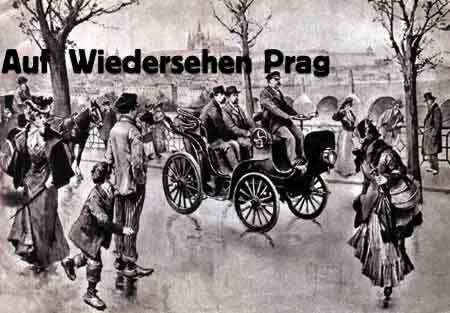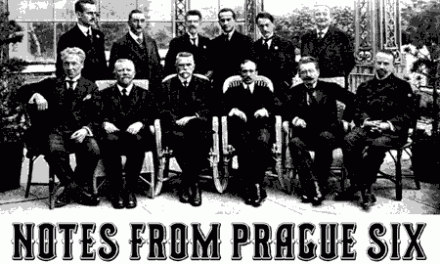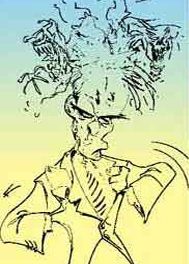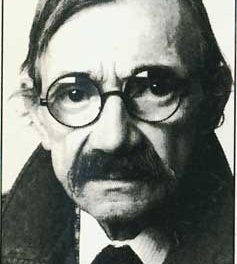I must say I’ve had a pretty good run for my money over the last nine years. When I arrived, the Czechs were mostly still sleep-walking. It was still Czechoslovakia back then, and most of them had the same jobs they had had before the so-called Revolution. Not only that – they had the same lifestyles.
Weekends at the cottage hunting for mushrooms, evenings in the pub talking about ice hockey. Nothing much had changed. So the majority of them still got up in the morning and just carried on with the same hopeless old routine. Things had changed, though, even if they didn’t know what to do about it, and the people who really benefited from this back then were the foreigners. Suddenly you could do whatever you wanted. No-one would stop you, and no-one would even resist much.
It’s remarkable that so little came out of it really. The Prague Post, Radost, The Globe, Little Glen’s, Laundry Kings… was this really the best we could do? Of course, there were a few contenders that didn’t make it. Prognosis, which wasn’t so great really, and most of the time only looked good in comparison with The Post. Yazzyk and a couple of other literary mags which weren’t actually so great either.
There used to be lots of greed-crazed Junior Capitalists fresh out of some appalling American business school or somewhere who had borrowed ten thousand dollars from Daddy and were convinced they were going to make it big. I don’t think any of them did. Anyway, they all crawled back where they came from in the end.
But there were at least a few people who went down in style. The original Thirsty Dog was truly a fantastic place to go and get drunk while it lasted. The Repre Club that used to be in the basement of the Obecni dum had real flair. And Prognosis did have its moments, actually. The Lazy Pigs and the Old Town Squares managed to squeeze in some OK rock and roll. And the theatre crowd managed a few magic moments too. But where are the media empires? The internationally famous art movements? The new film studios? The publishers? The record labels?
One problem of course is that the Czechs on the whole don’t have any interest in foreigners succeeding in their country. If it is done at all it is done on the sly. How many Czech viewers realise that three of the four role models in the current Krusovice beer advert on TV and in the cinemas (Theme: Let’s Go For A Beer; which deserves to be the national anthem) are Rich Gold, Dave O’Kelly and Dan Brown?
Apart from this kind of subterfuge, though, the only way you can be accepted into the Czech system is by going native, and basically the only people who can do that are other Slavs, who can under certain circumstances be accepted as honorary Czechs. There are one or two Westerners who have managed it (like Ewan McLaren, for instance, now departed, who got to act and direct in Czech, despite being Canadian), but the main problem is not actually the already very difficult one of the language barrier.
The main problem is that if you want to go native you have to accept the host culture, and make yourself a subsidiary part of it. This, after all, is what immigrants to Britain or France or the United States have to do. And in this case it means accepting all this mushrooms and ice hockey approach to the world, which most of us just can’t ever do. We can’t learn to take it seriously, however hard we try. And since the Czechs then realise that we regard them as infantile provincials, of course they don’t feel so well-disposed towards us either.
What you will often hear from Czechs is that the reason they are so xenophobic is that they have had such bad experiences with foreigners in the past. This needs a little explanation, though. They have had some difficulty with the Russians, it is true, but apart from that there aren’t that many people who have bothered them in any significant way. Not the Poles, the Hungarians, the Slovaks or anyone.
The people they are talking about mainly are the Germans and the Austrians. German-speakers lived in close contact with the Czechs for several hundred years, and that contact defines more than anything the Czech experience of foreigners.
To sum this relationship up in two words, it was one of hatred versus contempt. The Czechs loathed the Germans, and the Germans despised the Czechs. “What are these awful people doing in our lovely little country?” Is what the Czechs thought about it.
“Why are these people such useless idiots?” was the German response.
And we have now become the new Germans. We English-speakers, I mean.
Because Prague needs a second language and a second culture. You can’t actually run a modern capital city on beer and mushrooms. The second language was always German, and in fact until the 1870s Prague was more or less a German city as far as business and high culture was concerned: and now we have taken over. We don’t even have to do anything very much. Just sitting around in cafes will do it. It will take another ten or fifteen years I suppose to complete the process.
There is still an older generation of Czechs who were brought up with German. So sit tight. There is really not much point trying to learn the language. It just identifies you as one of the cultural underclass. Talk loudly in English. Look concescending when Czechs try and answer you in English. Laugh at their mistakes, and use lots of slang they can’t understand.
Then their cultural programming will take over, and they will accept you as a representative of the new Master Race, come to issue a new set of orders for them to resent. It doesn’t mean that they will like you, I’m afraid.
But at least you will have found your natural place in their society.
Sbohem, Cesko, na zdar. Jagr na hrad!





